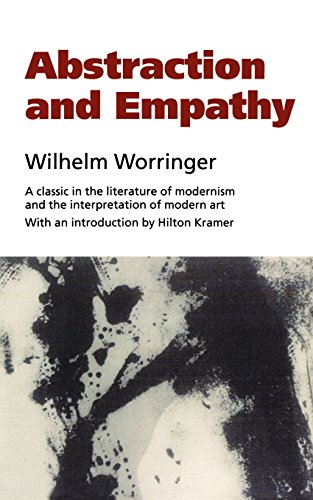Wilhelm Worringer: Abstraction and Empathy: A Contribution to the Psychology of Style (1907–)
Filed under book | Tags: · aesthetics, art, art history, art theory

“In this text, Worringer identifies two opposing tendencies pervading the history of art from ancient times through the Enlightenment. He claims that in societies experiencing periods of anxiety and intense spirituality, such as those of ancient Egypt and the Middle Ages, artistic production tends toward a flat, crystalline ‘abstraction’, while cultures that are oriented toward science and the physical world, like ancient Greece and Renaissance Italy, are dominated by more naturalistic, embodied styles, which he grouped under the term ’empathy’. As was traditional for art history at the time, Worringer’s book remained firmly engaged with the past, ignoring contemporaneous artistic production. Yet in the wake of its publication, Abstraction and Empathy came to be seen as fundamental for understanding the rise of Expressionism and the role of abstraction in the early twentieth century.”
First published as author’s dissertation entitled Abstraktion und Einfühlung, Heuser, Neuwied, 1907.
English edition
Translated by Michael Bullock
Publisher International University Press, New York, 1953
New edition with an Introduction by Hilton Kramer published by Ivan R. Dee, Chicago, 1997
ISBN 1566631777, 9781566631778
144 pages
WorldCat (EN)
Abstraktion und Einfühlung (German, 1907, further editions: 3rd, 1911, 11th, 1921)
Abstraction and Empathy (English, 1953/1997, 9 MB)
Leave a Reply

